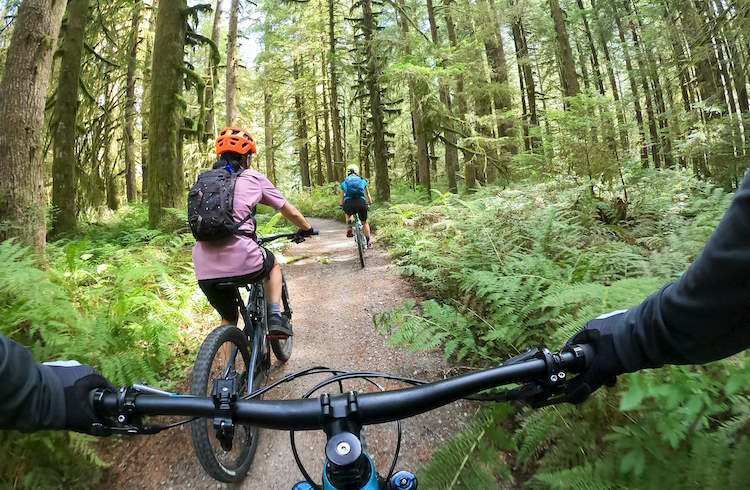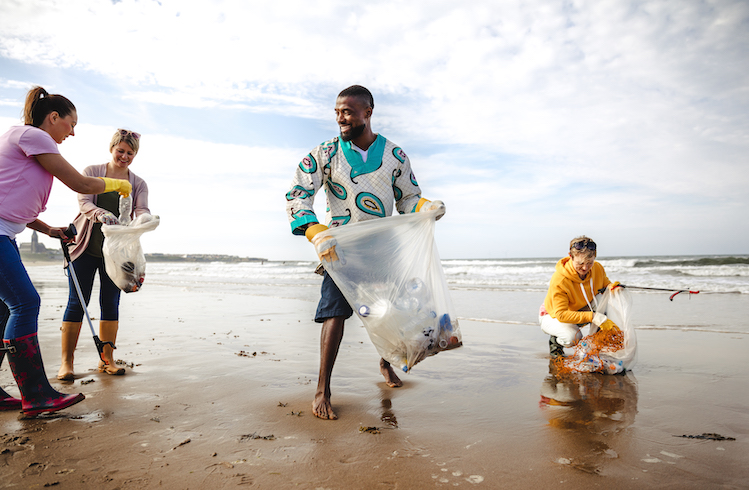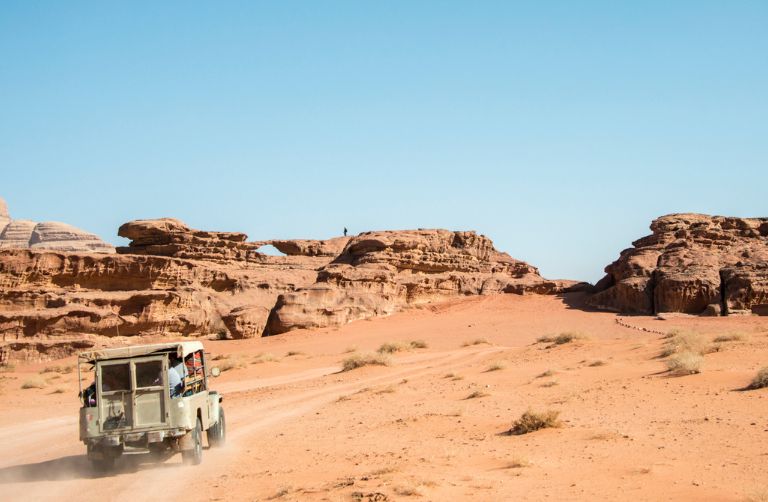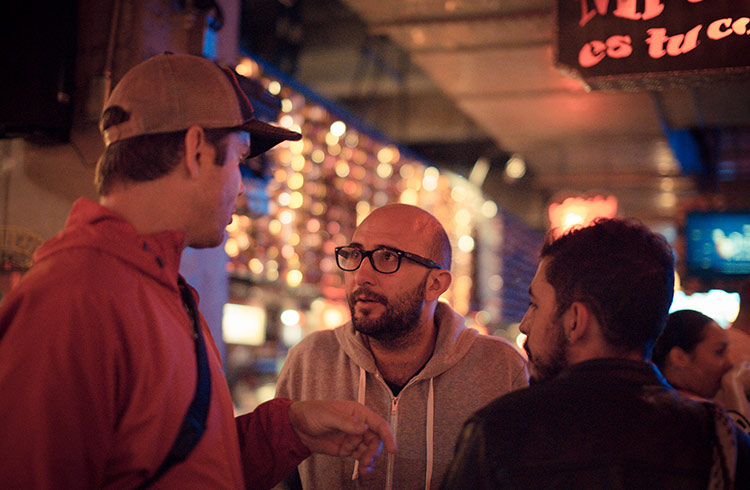8 Sustainable Travel Terms Every Traveler Should Know
Staying up-to-date with the latest terms can ensure we’re all on the same sustainable page and may even broaden our ideas of what the future of travel could look like.
 Photo © Getty Images / Pamela Joe McFarlane
Photo © Getty Images / Pamela Joe McFarlane
Ecotourism, carbon offsets and greenwashing are so five minutes ago. As our planet changes and traveling sustainably increasingly becomes the new normal, new words keep busting down the door of our ethical lexicon.
Of course, words can still be used to hide our true intentions and hoodwink others (greenwashing will probably always be a thing). But words can be a force for good too, connecting us with like-minded travelers and immersing us in a more sustainable future; speak the lingo and you’re already part of the responsible travel revolution.
Here are a few sustainable travel terms we’re all going to be hearing – and saying – a lot more.
- Nature positive
- Foodprint
- Decolonizing
- Guerilla humanitarianism
- Net zero
- Climate positive
- Untourism
- Jomo travel
Nature positive
“Nature positive” has become the buzz phrase of our time, particularly since the UN’s Biodiversity Conference, COP15, in Montreal in December 2022, where an historic global agreement was signed to, among other things, protect 30 per cent of the planet for nature and halt biodiversity loss by 2030 (the “30 by 30” target).
“Nature positive” is essentially the idea that limiting our damage to the natural environment isn’t enough; we need to ensure our actions have a positive impact. How? The World Travel and Tourism Council's Nature Positive Travel & Tourism report focuses on “reversing damage to nature” through recovery and regeneration and include tips on how to protect biodiversity and travel in harmony with nature.
Foodprint
A play on “carbon footprint”, this one relates to the environmental, animal welfare and social impact of the foods we eat. It might be trickier to calculate your “foodprint” than the carbon emissions of a trip, but it’s more about eating as ethically as we can, using guides such as Melbourne-based Sustainable Table and US-based Foodprint and its What You’re Eating podcast.
A related term is “climavore” – someone who reduces their impact on the climate through their food decisions. Being a climavore goes beyond eating plant-based or choosing SLOW (seasonal, local, organic, whole) foods when we travel. It involves considering the fossil-fuels used to grow, process, store, transport and cook what we eat, particularly in remote locations, and making food decisions as specific, and as beneficial, as possible to the destinations we visit.
Decolonizing
This growing movement – also called “rejecting neo-colonializm” – seeks to challenge predominantly white, Western perspectives that dominate how many destinations are presented and experienced. The goal: a truly inclusive, local-centric way of seeing and experiencing those places. “Decolonizing” travel means being aware of our privilege in traveling and questioning messages we might be presented with, asking at any given moment, “Is this the voice of the colonizer or the colonized?”.
As travelers, we can choose tours that shine a light on the realities behind tourism – such as those offered by Making the Road and the Hawaii DeTours Project (and companion book) – avoid white saviorism (particularly when volunteering) and words like “discover” and “colonial charm”, and support local guides and locally owned businesses, restaurants and hotels to ensure that the money we spend stays in the communities we visit.

Guerilla humanitarianism
Less institutional and more hands-on than voluntourism, “guerilla humanitarianism” is simply about doing good while you’re on the road. At its most basic, it can involve doing spontaneous beach clean-ups during a surf trip. Or you could pack specific items needed by people living where you’re going, whether it’s shoes or school books or medical supplies, donating them via hotels and tour operators through US-based Pack for a Purpose, which runs projects in more than 55 countries.
Similarly, Waves for Water has a “courier” program whereby travelers can crowdfund compact water filters they then carry in to remote, often inaccessible, communities; each water filter can provide 100 people with clean water for up to five years.
Net zero
“Zero carbon” – not producing any carbon emissions – might be the holy grail when it comes to climate action, but total decarbonization is practically impossible for the travel industry, which is responsible for roughly 8 per cent of global emissions. The next best thing is a “net zero” approach, which involves travel companies using science-based targets to make “rapid, deep emissions cuts”, reducing their emissions by 90-95 per cent by 2050 and neutralizing the remaining 5-10 per cent through carbon removal.
Intrepid Travel, which has been carbon neutral since 2010, has signed up to this approach. Their decarbonization measures include removing short-haul flights from 14 of their most popular trips in destinations such as Vietnam, Turkey, and Egypt.
Climate positive
In a perfect world, being “climate positive” would involve actually removing more carbon, and other greenhouse gases, from the atmosphere – through, say, carbon storage technology – than you produce. In reality, climate-positive companies use carbon offsetting, to offset more carbon than they emit. You might also hear travel companies marketing themselves as “climate-conscious” or “climate-aware”, meaning they’re taking action to reduce their contribution to the climate crisis, throughout their supply chains.
Going next level, Bhutan became the world’s first “carbon-negative” destination in 2021; its extensive forests act as a carbon sink, absorbing more carbon than the tiny Himalayan country produces. And Gabon in central Africa uses its equatorial rainforests to do the same, but calls itself the most “carbon positive” nation on earth.
Untourism
First, there was overtourism. Then came undertourism, with tour operators promoting unsung hiking trails and “second cities”, to share the travel love.
Now there’s “untourism” which, in its purest form, is all about wandering, without a list or an itinerary, letting serendipity be your guide. It’s about travelers interacting directly with locals who get to show off their favorite places and the things they love doing to a select few, in an ad hoc fashion – not on organized tours. It’s personal, unplanned, affecting and refreshingly non-commercial – although, inevitably, there are “untours” such as the wildly popular We Hate Tourism Tours in Portugal.
Jomo travel
You’re likely familiar with the term FOMO (fear of missing out). This type of social pressure often has travelers packing as much into their itinerary as possible. What if you don’t check out that restaurant or beach or museum everyone is raving about?
JOMO (the joy of missing out) turns that on its head. Similar to the “slow travel” movement, Jomo travel is about intentionally limiting the number of stops or attractions you visit, and instead taking the time to truly savor and enjoy the place you’re in. It’s OK not to see or do everything. And it’s OK not to share every moment on social media. Putting phones down and keeping your schedule light makes for a much more relaxing holiday.
Jomo travel often involves spending time in nature or seeking out wellness retreats, but it can apply to a city visit or stay-cation too. It has the added benefits of helping local economies and reducing your carbon footprint, since you’re staying longer in one place.
Related articles
Simple and flexible travel insurance
You can buy at home or while traveling, and claim online from anywhere in the world. With 150+ adventure activities covered and 24/7 emergency assistance.
Get a quote

No Comments